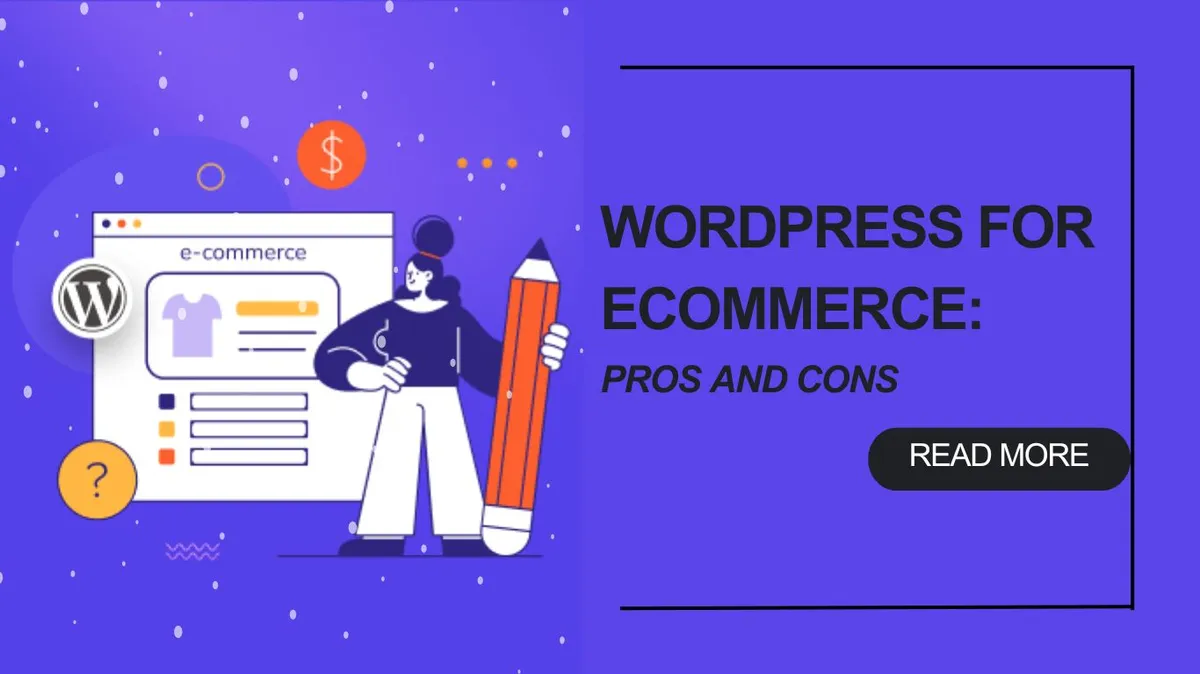The first choice of platform for building an e-commerce website is generally big names like Shopify or BigCommerce. However, you can also consider pairing WordPress with a plugin like WooCommerce, which is gradually gaining popularity for its customization, cost-effectiveness, and flexibility. But is WordPress the right solution for your e-commerce needs?
In this article, we’ll explore the pros and cons of using WordPress for e-commerce to help you determine whether it’s the best platform for your business.
The Pros of Using WordPress for E-Commerce
1. Cost-Effective Solution
One of the most significant benefits of using WordPress for e-commerce is its cost-effectiveness. WordPress itself is free to use, and the WooCommerce plugin, which adds e-commerce functionality to WordPress, is also free. While you’ll need to pay for hosting, domain registration, and certain premium themes or plugins, the initial cost of setting up a WordPress-based e-commerce site is relatively low compared to other e-commerce platforms like Shopify or Magento.
2. Unlimited Customization
WordPress is an open-source platform, which means you have complete control over the design and functionality of your website. With thousands of themes and plugins available, you can fully customize your online store to fit your brand’s unique needs. Whether you want to add special payment gateways, advanced product filters, or custom shipping options, WordPress allows for nearly unlimited customization options.
Additionally, since it’s open-source, you can modify the code if you have development skills or work with a developer to make advanced customizations. This flexibility gives you the freedom to create a truly unique shopping experience for your customers.
3. Scalability
As your business grows, so will your e-commerce needs. WordPress and WooCommerce are highly scalable, allowing you to expand your online store as needed. You can add an unlimited number of products, product categories, and even create multiple online stores with a single WordPress installation.
Furthermore, WordPress is capable of handling significant traffic and large numbers of transactions if you optimize your hosting and choose the right plugins. This scalability makes WordPress a great option for businesses that are planning to grow in the long term.
4. SEO-Friendly
WordPress is known for being highly SEO-friendly out of the box. With plugins like Yoast SEO, you can optimize every page of your online store for search engines, improving your chances of ranking higher in search results. Additionally, WordPress allows you to have full control over your website’s content structure, meta tags, URLs, and other important SEO elements.
Having a well-optimized site means that potential customers are more likely to find your store through organic search, which can result in more traffic and sales.
5. Large Support Community
Since WordPress is the most widely used content management system (CMS) in the world, it has a large and active community of developers, designers, and business owners. If you run into problems or need guidance on setting up your e-commerce site, you can easily find tutorials, forums, and other resources to help you solve issues. Additionally, with a wealth of themes, plugins, and extensions available, you’ll have plenty of options to enhance your online store.
The Cons of Using WordPress for E-Commerce
1. Requires Regular Maintenance
While WordPress is relatively easy to use, it does require regular maintenance. You’ll need to keep the platform, themes, and plugins updated to ensure your site remains secure and functions properly. Additionally, as the number of plugins you use increases, so does the risk of conflicts and compatibility issues. If you’re not familiar with WordPress or don’t have the time to maintain your site, this could be a significant downside.
You’ll also need to make sure your website is backed up regularly and that security measures are in place to protect against potential hacking attempts.
2. Performance Issues with Large Stores
As your store grows and you add more products, categories, and content, WordPress can become slower if not properly optimized. Larger e-commerce websites may experience performance issues such as slow load times, especially if you have many images, videos, or complex functionalities.
To combat this, you’ll need to invest in high-quality hosting, use caching plugins, and optimize your images and site structure. However, for businesses with very large inventories or those anticipating significant traffic, this might become a challenging task.
3. Steeper Learning Curve for Beginners
While WordPress itself is user-friendly, setting up and managing a fully functional e-commerce store can be more complicated than using dedicated platforms like Shopify. If you’re new to website management, you may face a steep learning curve when it comes to configuring products, managing shipping settings, and ensuring your store functions properly.
Fortunately, there are many tutorials and guides available online to help beginners, but if you’re looking for something that requires minimal effort, WordPress may not be the best choice.
4. Hidden Costs
Although WordPress is free, running an e-commerce site requires various additional costs. For example, while WooCommerce itself is free, you may need to purchase premium plugins for advanced features like advanced payment gateways, subscription services, or enhanced product filtering. You may also need to invest in premium themes, SSL certificates, or high-performance hosting as your site grows.
These costs can add up over time, so it’s important to factor them into your budget when deciding whether WordPress is right for your e-commerce store.
5. Security Risks
WordPress is a popular target for hackers due to its widespread use. While security plugins and regular updates can help protect your website, WordPress sites are often targeted by malicious actors. If you don’t regularly maintain your site, install security patches, or use secure plugins, your store could become vulnerable to attacks.
Unlike dedicated e-commerce platforms like Shopify, which handle security for you, WordPress requires you to take an active role in ensuring your site’s safety.
Is WordPress Right for Your E-Commerce Store?
WordPress with WooCommerce can be an excellent choice for small to medium-sized businesses looking for a flexible and customizable e-commerce platform. If you have some technical knowledge or the ability to hire a developer, WordPress offers a range of benefits, including customization, scalability, and SEO advantages.
However, it may not be the best fit for everyone. If you’re just starting out and want something quick and easy with minimal technical setup, platforms like Shopify may be a better option. Additionally, if you plan to run a very large e-commerce store with complex needs, the performance and maintenance challenges of WordPress could become a concern.
Ultimately, the decision depends on your business goals, budget, and willingness to invest time and resources into maintaining your site. If you’re looking for a cost-effective, customizable solution and are prepared to handle some of the more technical aspects of running an e-commerce site, WordPress could be a great option for you.

